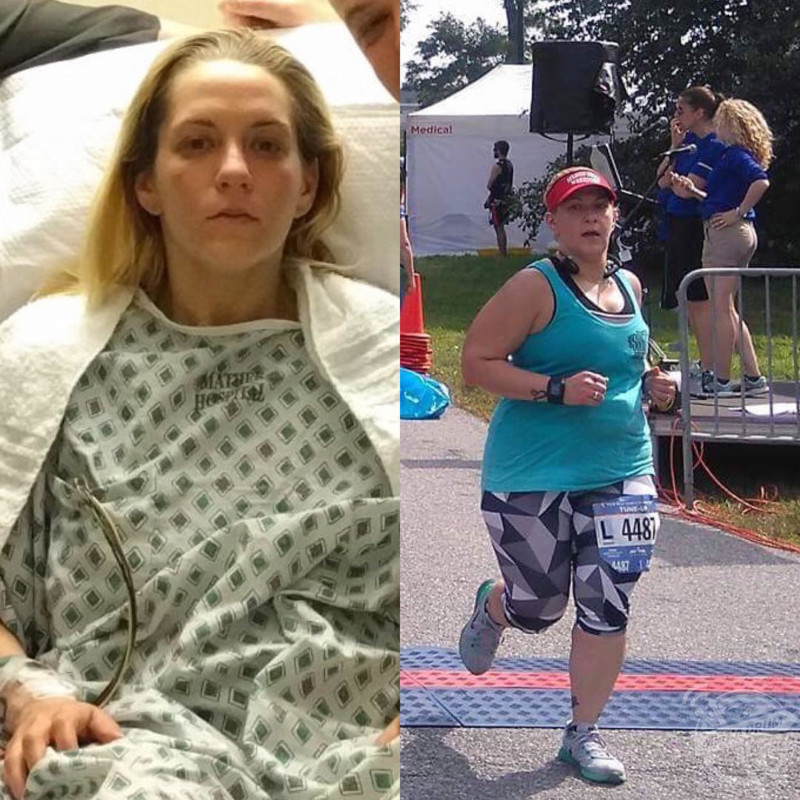By Rebecca Drew
A RUNNER has revealed how after completing a half-marathon she was struck down by a terrifying out-of-the-blue nerve condition that left her paralysed from the waist down and unable to do anything for herself.
When graphic artist Marie Sander (30) from Lindenhurst, USA, suddenly started to feel more fatigued than usual in April 2016 she put it down to her busy work schedule and not having enough time for sleep.
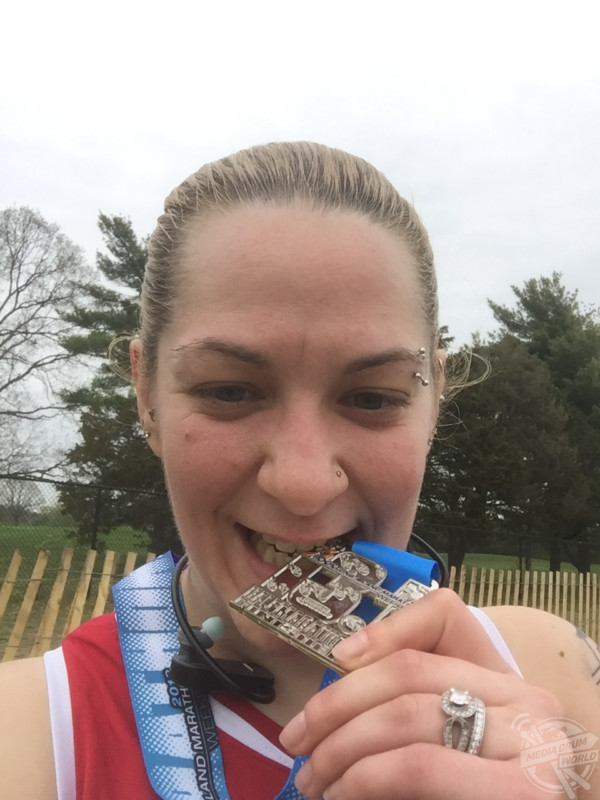
Despite her tiredness, keen runner Marie competed in a half marathon a week later but just a couple of days after the event she was struggling to walk and by the next weekend she was completely paralysed from the waist down and had weakness in her arms and paralysis in her face.
Unable to feed herself and struggling to eat due to exhaustion, Marie was diagnosed with Guillain-Barré syndrome and spent a month between hospitals where she received medical and physiotherapy treatment.
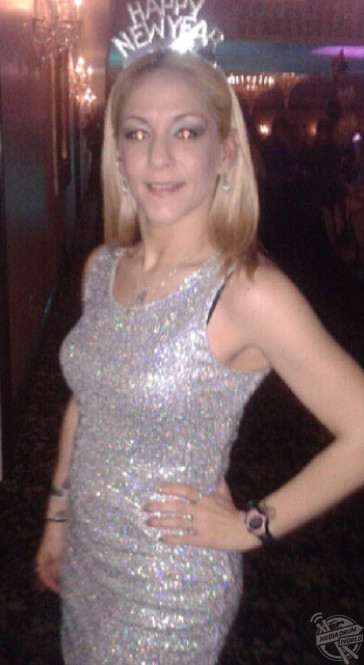
“Physically speaking, I could not do anything for myself, not even go to the bathroom. I could not feed myself, and even when someone else fed me, the task of eating was exhausting,” Marie explained.
“Mentally, it was one of the hardest, most troubling things I’ve ever been through. I’m fiercely independent. I do not like asking for help. When I first became ill, I had to accept help for the first time.
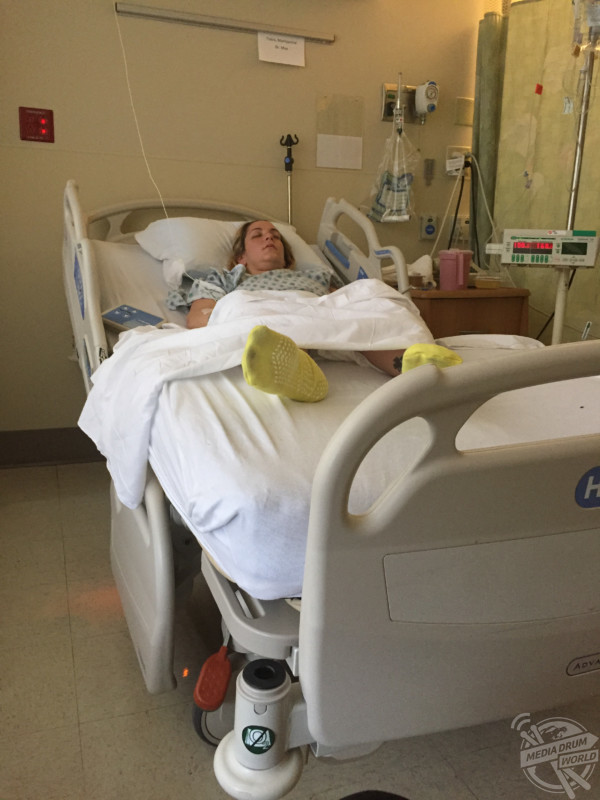
“Some of my running friends put money together and sent my husband and me a Visa gift card so we could afford groceries. It was very generous of them, and to this day, I appreciate their kindness and generosity, but I hated being in that kind of position.
“I spent about a month between two hospitals when I was initially diagnosed. In the first hospital, I received a pharmaceutical treatment which was, for lack of a better term, a “hard reset” for my immune system. Because of the treatment, called Intravenous Immunoglobulin (IVIG), my body went to work repairing the damage that had been done.
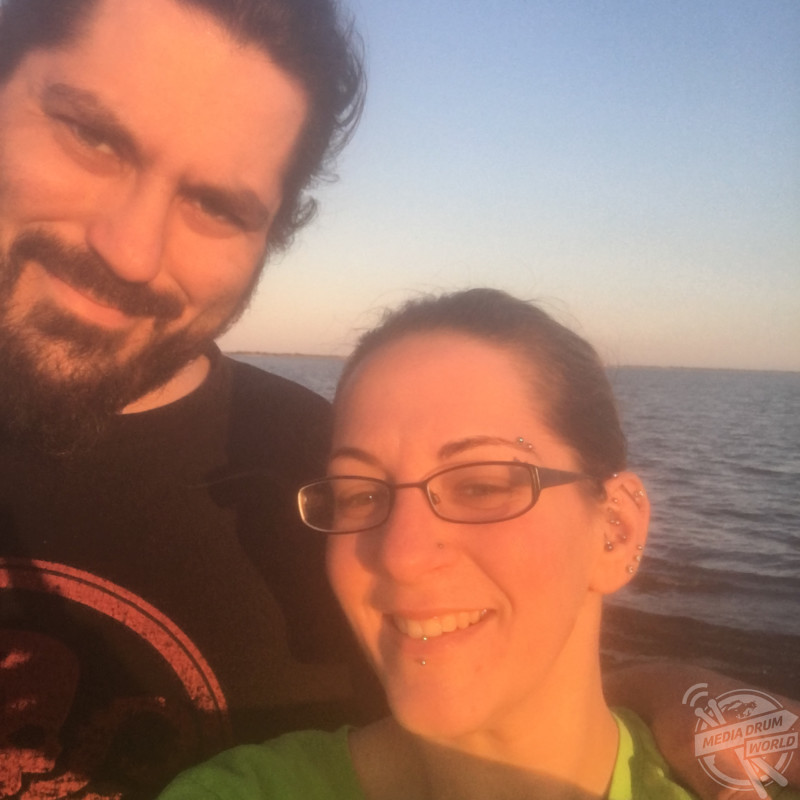
“I also started a little physical therapy in this hospital, which consisted entirely of walking down the hallway (if what I was doing could be called “walking” at that point). I would be dragging my feet, as I was not strong enough to pick them up, leaning on a walker, with a rolling recliner behind me, just in case I had to stop.
“After that, the therapist would do some light strength and mobility exercises on my legs. Each session would last about half an hour.
“When I got to the second hospital, their concentration was on physical therapy and rehabilitation. I’d receive two hours of physical therapy, and one hour of occupational therapy, each day. The physical therapy at this hospital was much more intense, and would consist of different strengthening exercises, coordination, wall walking, walking on a walker for longer periods of time, climbing upstairs and even bicycle training.
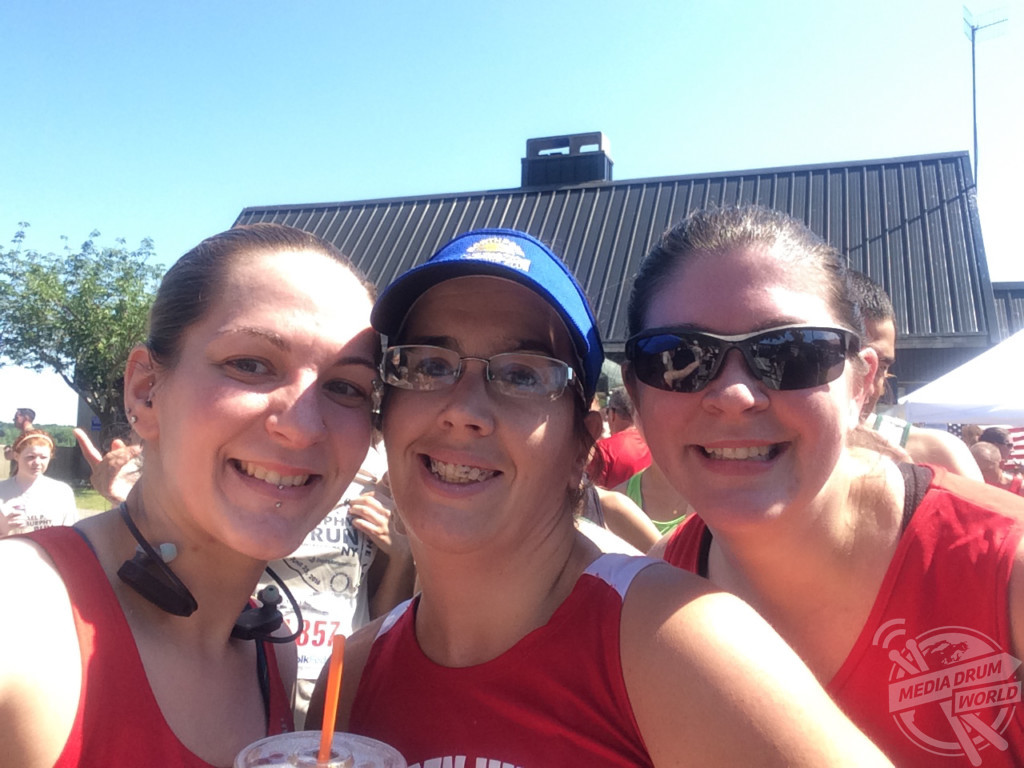
“Because of the intensity of these sessions, I’d find myself needing to nap for at least an hour or two afterwards.
“There was also a treadmill in the physical therapy area, which I asked my therapist about. He informed me that the vast majority of patients do not get on the treadmill before leaving because they’re not ready for it.
“I told him that my goal was to be on the treadmill before I was discharged. Five days before I was, I got on that treadmill for ten minutes, at a speed of 0.05 miles per hour. I didn’t want to go fast, I just wanted to go.”
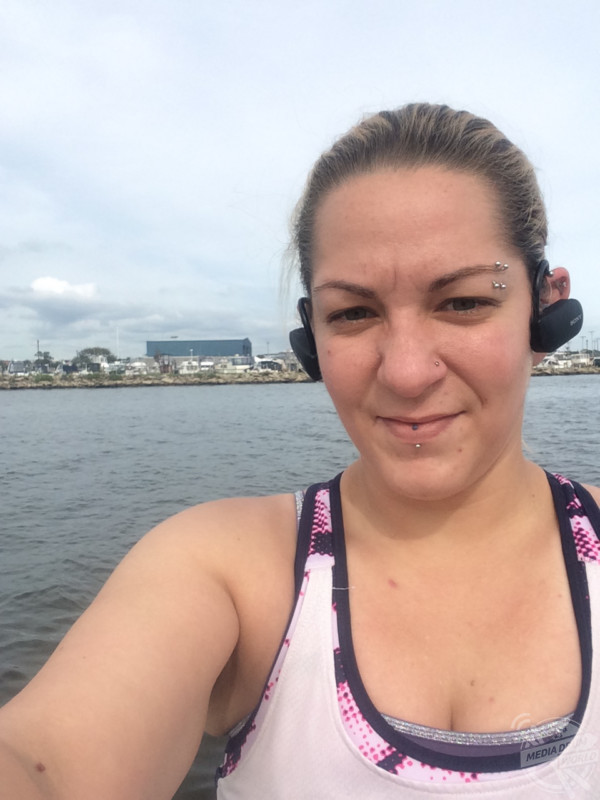
Guillain-Barré syndrome is a very rare condition that affects the nerves. It mainly affects the feet, hands and limbs which can cause numbness, weakness and pain. Early symptoms can continue to get worse over the days or weeks and severe cases can cause paralysis and difficulty breathing and/or swallowing.
It is thought to be caused by a problem with the immune system which attacks germs or infections in the body but in people with Guillain-Barré syndrome, something goes wrong and the immune system starts to attack and damage the nerves.
It took Marie six weeks to comfortably walk unaided after her diagnosis and she credits running for helping her build stamina and coordination over the course of her recovery. She is now a brand ambassador for a UK based fitness clothing company, Just Strong whose mission is to empower women and encourage them to be their best.
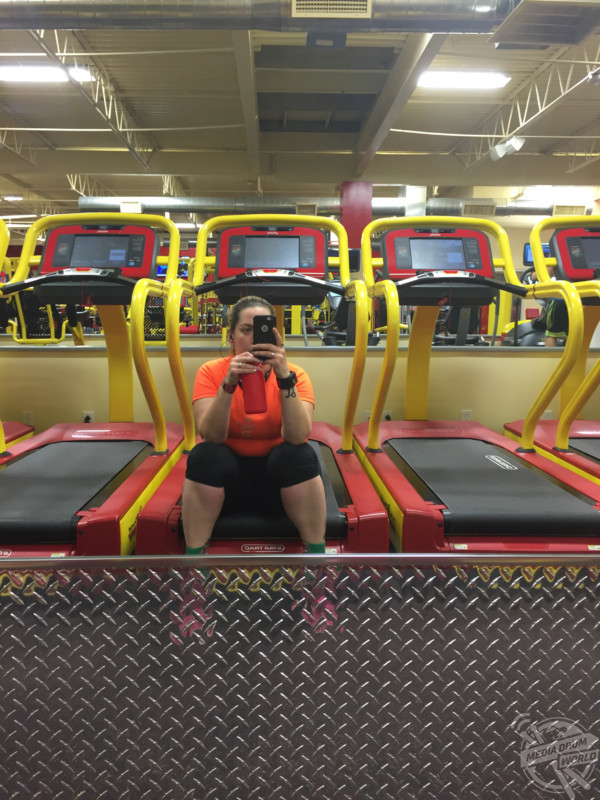
“Running has been a huge part of my recovery. My neurologist, at one point, said he felt that the reason the paralysis stopped where it did, I was completely paralysed from the waist down, but never lost use of my arms, was because of how strong my legs are; there was a lot in that area for my body to attack,” she said.
“Running has also helped improve my coordination and stamina. Mentally, it’s also helped me feel like I’m who I was before I got sick.
“Just like before, it helps me to challenge myself and decompress after a long day, or when I’m stressed out. It’s an hour or so where, I can forget that I am chronically ill.”
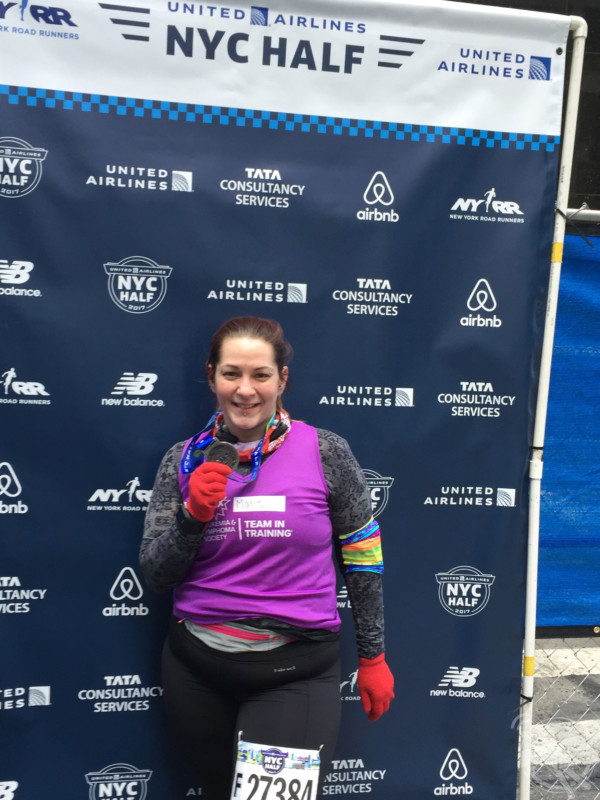
Most people with Guillain-Barré syndrome make a full recovery but this can take months or years. Some people don’t make full recoveries and are left with long-term problems that can include weakness in the arms, legs or face, numbness, balance and coordination problems and extreme tiredness.
Marie has both good and bad days as she continues her rehabilitation but says that the most difficult aspect of her recovery has been accepting that she no longer has the energy she used to and still sometimes has to ask people for help.
“I do still experience good days and bad days. If I’m having a good day, I don’t feel sick. I don’t feel like I have this constant black cloud looming over my head,” she said.
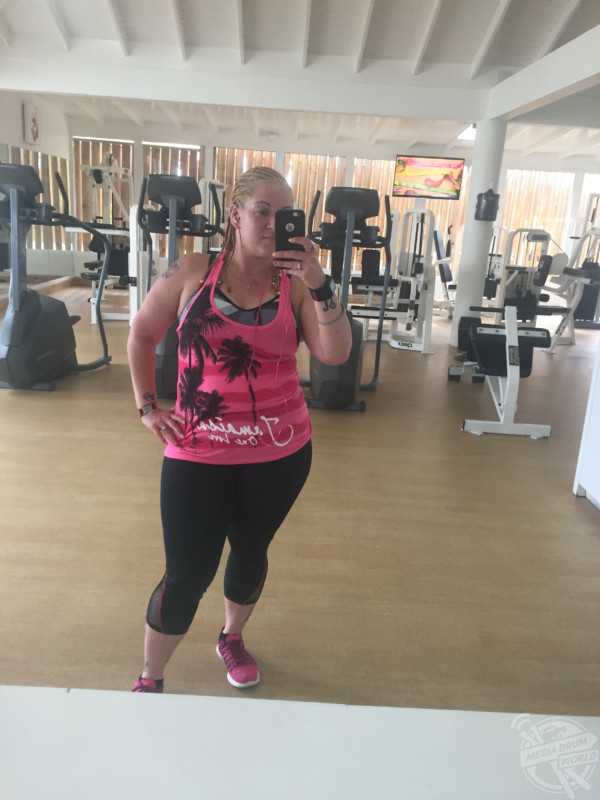
“On a bad day, I can get very frustrated with myself, and not being able to do the things I used to. Those are also the days where I’m not only down on myself, but I’m resentful of my illness. Why did this happen to me? I allow myself to be angry and frustrated on those days, with the promise to myself that, tomorrow will be better.
“The most difficult thing with my recovery has been learning to say no, learning to listen to my body. I don’t have the same kind of energy that I used to, so I am still learning to delegate what I need to do now, and what can wait. I also still have to ask for help sometimes which, as I said earlier, is very difficult for me.
“My friends and family are thrilled and proud of my progress. They always say that I look wonderful. A girl I used to work with said the best thing I’ve ever heard; ‘you’re starting to look like your old self’.”
Finally, Marie shared her words of advice to others who might have just received a Guillain-Barré syndrome diagnosis.
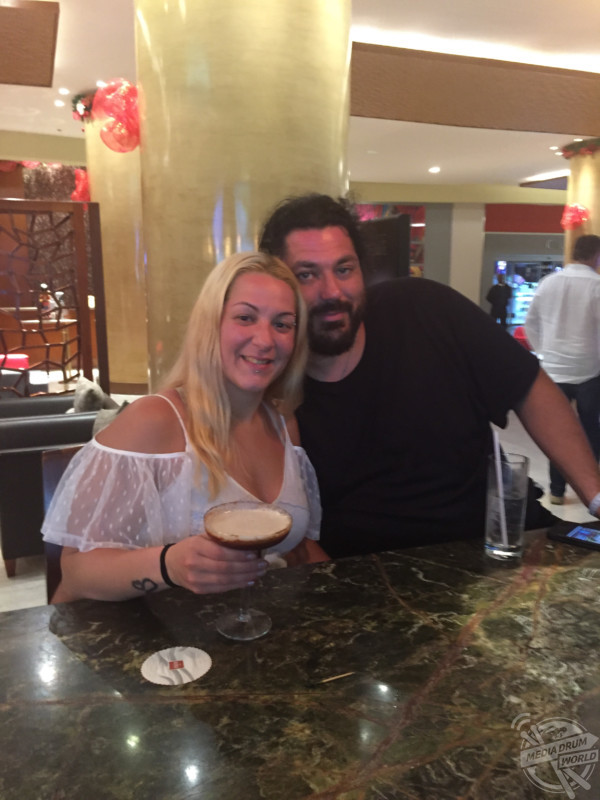
“It gets better. You will get through this. It sucks now, I know, but in a few months time, it will all seem like a really bad dream,” she added.
“And it is absolutely, one hundred percent OK to say no, or to ask for help. As far as the people around you, it will be mind over matter when you have to say no or ask for help, those who matter, don’t mind, and those who mind, don’t matter.
“Your top priority is taking care of yourself. Everything else comes second.”
For more information see www.instagram.com/runningwithgbs

